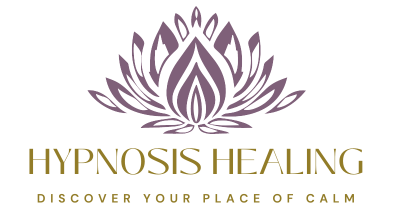How the Practice of Gratitude Helps to Reduce Anxiety
How the Practice of Gratitude Helps to Reduce Anxiety
In a world that often feels fast-paced and overwhelming, anxiety has become a common experience for many people. While there are numerous strategies for managing anxiety, one of the most powerful—and often overlooked—tools is the simple practice of gratitude. Cultivating gratitude can significantly reduce anxiety, fostering a greater sense of calm and well-being. Here’s how practicing gratitude can help ease anxious feelings and improve mental health.
Shifting Focus from Worry to Appreciation
Anxiety often stems from focusing on potential threats, uncertainties, or negative outcomes. This focus on what might go wrong can create a cycle of worry that’s hard to break. Gratitude, however, shifts the focus away from what we fear and towards what we appreciate. By consciously directing attention to the positive aspects of our lives, we can break the cycle of anxious thinking.
When we take time to acknowledge the good things—whether it’s a supportive friend, a beautiful sunset, or even a small success at work—we train our minds to notice and appreciate positive experiences. This shift in focus can reduce the mental space that anxiety occupies, leaving us feeling more grounded and content.
Reducing Stress and Boosting Resilience
Gratitude has a direct impact on our stress levels. Research shows that when we practice gratitude, our brains release dopamine and serotonin, the “feel-good” neurotransmitters that help regulate mood. This release can lower stress hormones like cortisol, leading to a calmer state of mind. Over time, regular practice of gratitude can even help rewire the brain, making it easier to handle stress and anxiety when they arise.
Moreover, gratitude can enhance resilience—the ability to bounce back from challenges. When we focus on what we’re grateful for, we build a mindset of abundance rather than scarcity. This mindset allows us to see challenges as opportunities for growth rather than insurmountable obstacles, which can reduce feelings of anxiety in the face of adversity.
Improving Sleep and Relaxation
Anxiety often disrupts sleep, creating a vicious cycle where lack of rest exacerbates anxious feelings. Gratitude can help break this cycle by promoting relaxation and improving sleep quality. Studies have shown that people who practice gratitude before bed tend to fall asleep faster and enjoy more restful sleep.
A simple gratitude practice, such as writing down three things you’re thankful for each night, can calm the mind and shift focus away from anxious thoughts. This practice helps create a peaceful mental state, making it easier to unwind and enjoy restorative sleep, which is crucial for managing anxiety.
Strengthening Social Connections
Gratitude also plays a key role in strengthening our relationships with others, which is another powerful way to reduce anxiety. When we express gratitude to those around us, we foster a sense of connection and support. These positive interactions can provide emotional comfort and a sense of security, which are essential for reducing anxiety.
Furthermore, strong social bonds are a protective factor against anxiety. When we feel connected to others, we are less likely to feel isolated and overwhelmed by our worries. Gratitude helps cultivate these connections, making us feel more supported and less anxious.
Creating a Positive Feedback Loop
The more we practice gratitude, the more we reinforce a positive feedback loop that benefits our mental health. As we become more attuned to the good in our lives, we begin to experience less anxiety and more joy. This positive outlook further encourages the practice of gratitude, creating a cycle that continually boosts well-being.
Gratitude doesn’t eliminate challenges or anxiety altogether, but it does provide a powerful counterbalance. By regularly practicing gratitude, we can create a mental environment where anxiety has less power, and where peace and contentment can flourish.
Starting Your Gratitude Practice
If you’re ready to incorporate gratitude into your daily life, start small. Consider keeping a gratitude journal, where you jot down a few things you’re thankful for each day. You can also practice gratitude in the moment by pausing to appreciate the simple pleasures in your life, like a warm cup of tea or a friendly smile. Over time, these small practices can add up to significant reductions in anxiety and a greater sense of overall well-being.
Remember, gratitude is a practice, not a one-time fix. The more you engage with it, the more benefits you’ll see in your mental and emotional health. So, take a moment today to reflect on what you’re grateful for—it might just be the first step toward a calmer, more peaceful you.









